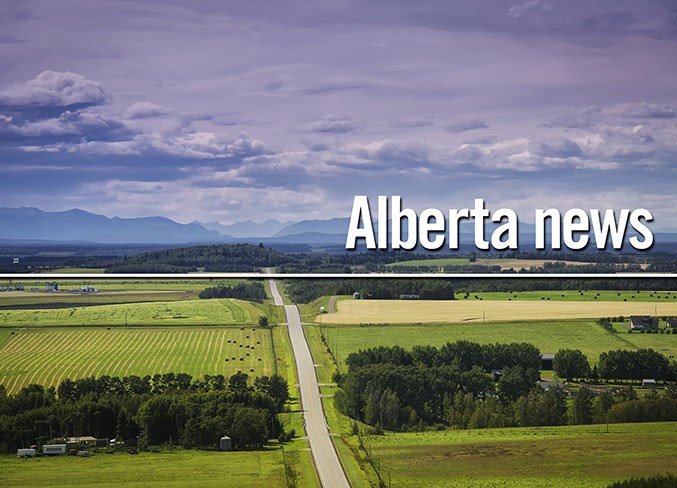A rural municipal leader said the recent provincial budget is good news for small communities across Alberta.
On Thursday, the provincial government tabled its 2022-23 budget, which saw the numbers come into balance for the first time since 2014.
Paul McLauchlin, president of Rural Municipalities of Alberta, said there was a lot of good news in the budget for small communities across the province.
“From a from a capital infrastructure standpoint, it’s definitely good news,” McLauchlin said.
The budget set aside cash for capital health-care needs in rural communities, including $1.8 billion for the Red Deer Regional Hospital Centre redevelopment project, which will serve central Alberta, and $46 million over three years for the La Crete Maternity and Community Health Centre.
“Those are great messages for rural Alberta, for sure,” McLauchlin said.
Highways in rural communities will also get some much-needed funding, including $120 million for the twinning of Highway 11 from Red Deer to Rocky Mountain House; $43 million for Highway 19 near Nisku; and $32 million for an upgrade to Highway 1A through Stoney First Nation.
“These are these are projects people have been talking about for years," said McLauchlin.
While many capital projects will be funded through the budget, McLauchlin said the reduction in funding to municipalities, which was announced two years ago, is going to impact infrastructure municipalities must fund themselves.
The Municipal Sustainability Initiative, which is money going to municipalities to fund projects such as roads, bridges, water systems, recreational facilities, and other important local priorities, was dropped from $1 billion annually two years ago to only $485 million in 2022-23 and 2023-24. The cash will fall back to $722 million the following year, but McLauchlin said that isn’t enough of an increase.
“If there's one thing that I'm grumbling about, it's that [the funding] doesn't make us whole again,” McLauchlin said. “It’s been eroded.”
Municipalities in Alberta are unique, McLauchlin said, in not only that they are larger than most other municipalities across Canada, but are also further north than most, which means communities face the challenges of servicing large areas of land with low population densities.
“The great success of the oil and gas industry right now, the ability to move product, is really predicated on the infrastructure that we have,” McLauchlin said.
Alberta Municipalities President Cathy Heron said municipalities were warned the money would be shrinking, so they planned their projects accordingly and shouldn’t be surprised to see the “significant reduction.”
“Don’t get me wrong. It’s going to hurt,” Heron said.
“There needs to be some better planning and relationship building with the province to support our infrastructure needs, otherwise we're going to be in some dire straits in the future.”
The investment in rural health-care retention is also important to help small communities thrive and stay viable, McLauchlin said, and the 2022 budget has allocated cash to help recruit and retain doctors and nurses in rural communities.
The budget also set aside funds for the Rural Education Supplement and Integrated Doctor Experience program, which will give $6 million to 60 new family physicians over three years to help inspire doctors to work in 15 rural or remote communities.
The province also plans to spend around $90 million per year to retain and recruit rural doctors, with another $15 million earmarked for the Rural Capacity Investment Fund, which supports bringing and keeping nurses in rural communities. Another $7.5 million will be spent over three years to support nurses who move to rural and remote communities.
“[It has] been a crisis,” McLauchlin said, adding that clinics and emergency rooms have been short staffed, forcing rural residents to drive an hour or more to access medical services.
“We have a tremendous shortage of rural physicians.”
Finance Minister Travis Toews said Monday it has been tough to attract physicians to rural Alberta, and nurses have been under pressure for the past few years due to COVID-19.
Toews said he is confident the programs to attract and retain rural physicians will result in an increase in doctor capacity in some of the lowest served areas of the province.
“There's a number of key initiatives in this budget, certainly increased funding for health, and I believe all of this will improve health-care capacity in rural Alberta,” Toews said.




